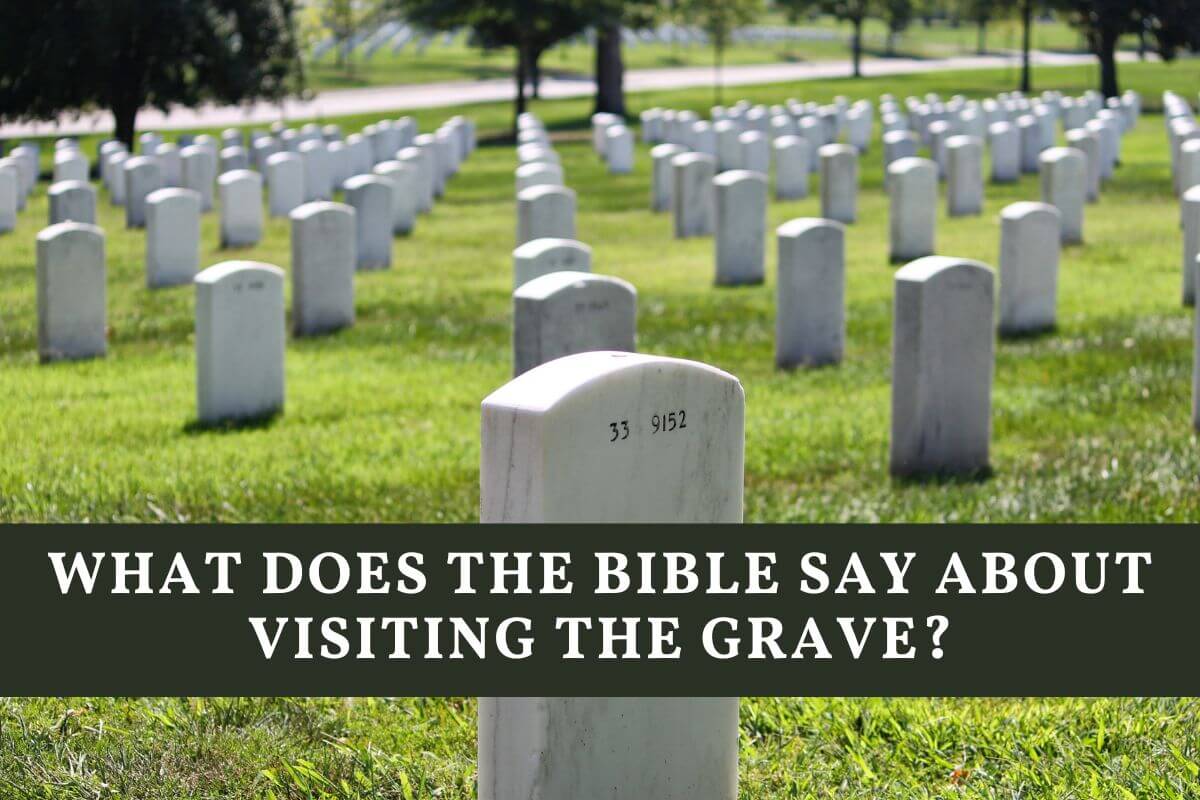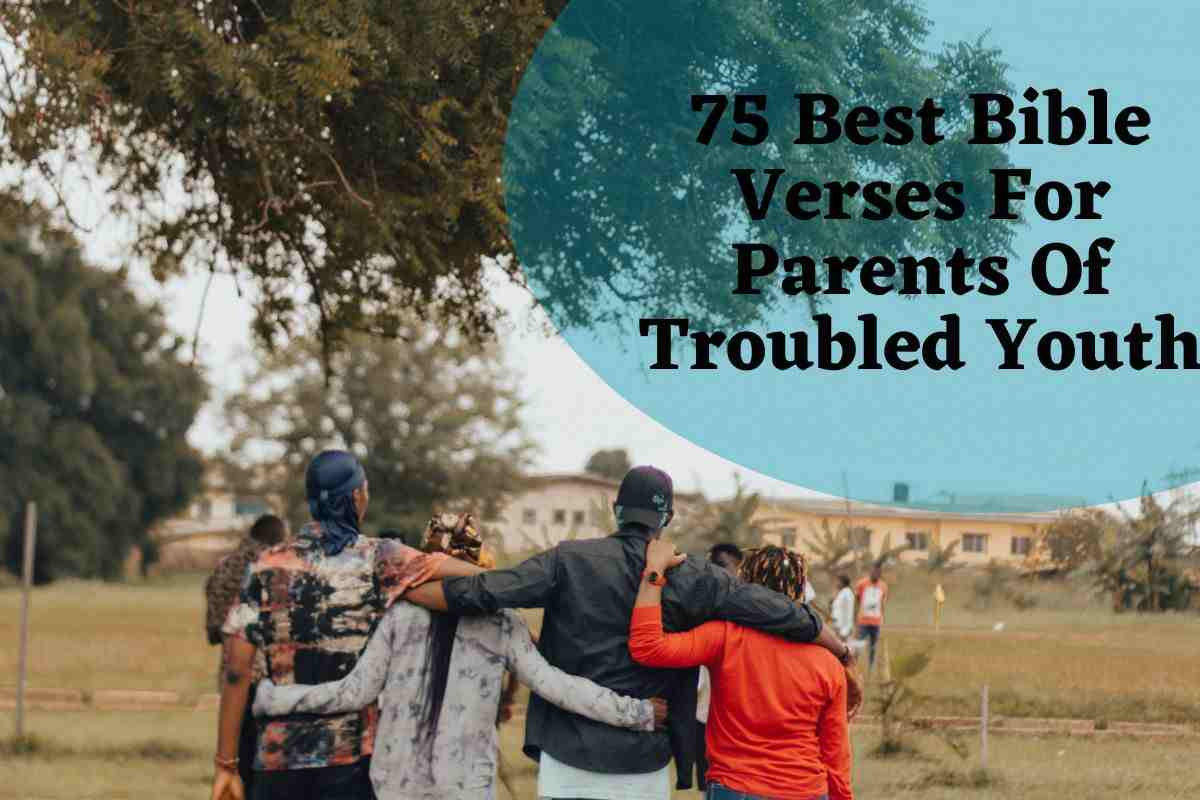People often asked, What does the bible say about visiting the grave? Did you know that the Bible, actually tells us about people going to visit their dead? It does! The following is an excerpt from the book of 2 Samuel, which is part of the Holy Bible. In this article, we find David visiting the grave of one of his fallen soldiers and also rewarding a loyal musician for being a faithful servant.
Jesus warned us about the dangers of worshipping and making a god out of material things in Matthew 6:19-21. But his warning to guard against the temptation to worship graven images is not limited to money. It can also be applied to visiting a grave site.
Visiting the grave is a sensitive subject for many, even more so in our present times. There are still those who will debate whether it’s a good thing to do or not. But I am of the positive perspective that visiting grave sites can be relatively helpful for some people.
What does the bible say about visiting the grave?
There is no scripture on when or how often we should visit our dead relations. However, there are many Christian traditions for doing so. Some people go to their graves every year on All Souls Day (November 2nd), while others wait until Christmas Eve or Easter Sunday. It really depends on what tradition you follow and how often you feel inclined to visit your loved ones in the spirit world.
The Bible also says that you should visit your loved ones’ graves regularly. This can be done to show your support for them and their memory, as well as to keep their grave clean and well-kept. We also ought to visit the graves of our loved ones occasionally. It also tells us that we are to comfort them as best we can, and be kind to their memories. The Bible also encourages us to remember those who have died and not grieve over them too much.
Jesus warned us about the dangers of worshipping and making a god out of material things in Matthew 6:19-21. But his warning to guard against the temptation to worship graven images is not limited to money. It can also be applied to visiting a grave site.
Visiting the grave is a sensitive subject for many, even more so in our present times. There are still those who will debate whether it’s a good thing to do or not. But I am of the positive perspective that visiting grave sites can be relatively helpful for some people.
What does the bible say about the grave?
The Bible says that we should treat graves with respect. The first thing we should do when we hear of someone passing away gives them a proper funeral.
The Bible says to bury the dead, not to leave their bodies on display for all to see. If you want to show your respect for the dead, you must bury them properly and show your love for them by honoring their memory.
The Bible mentions the grave a lot, and it’s no surprise it has a LOT to say about death and the afterlife. In fact, there are so many references to the dead in Scripture that some people have suggested that this could be why we don’t see any gravesites or cemeteries in the Bible itself.
In the Bible, a grave is a place of rest. It is where you go when you are dead. There are many different views about what happens after death and whether or not there is life after death. The Bible mentions that there is no death in it, but only an awakening from sleep (Job 14:14).
Why is it important to visit the grave?
It’s important to visit the grave because it helps us remember our loved ones. When we visit the grave, we can reflect on what they taught us, how they affected our lives, and how much we miss them. It is an important part of a person’s life, and should not be ignored or forgotten about.
Visiting the grave is also important because it gives us a chance to reflect on our lives and how we want to live them. We often put off visiting our graves until we are old enough to realize that life is short, but visiting the graves of our loved ones can help us get started on making a plan for the next stage of our lives.
It’s important to visit the grave of someone you’ve lost because it helps you remember them, your memories of them, and the impact they had on your life. It also lets you honor them in a physical way. Visiting the grave is a great way to say goodbye, but it’s also an opportunity to make peace with your loss and move forward with your life. It’s important to visit the grave of your loved one because it’s a way of saying, “I was here.”
Visiting a grave is also a way of showing respect for the person who has passed away. It’s important to show that you care about them and that they are still important to you. You can do this by leaving flowers or other gifts at their gravesite, praying for them, and by sharing their story with others.
Can Christians visit graveyards?
Christians can visit the graveyard. The Bible clearly states that God created everything that is visible and invisible. Thus, it is safe to say that He has ordained humans to be able to go anywhere they wish in His creation.
The most important thing to remember while visiting a graveyard is that we should be careful not to engage in any form of witchcraft or sorcery while there. We should also avoid speaking any words or phrases that could potentially harm someone else’s life and property at the same time.
The Bible doesn’t specifically say you can’t, but it does say that we should treat graves with respect and that God shall give us understanding in all things. As long as you’re not doing anything disrespectful or hurtful to the dead and as long as you’re not hurting anyone else by visiting their grave it’s fine to visit a graveyard.
What does the Bible say about going to the cemetery?
The Bible says that we should not visit cemeteries regularly, but there are times when it is acceptable.
1) A person who is dead can no longer sin and cannot be punished for their sins (1 Corinthians 5:6). Therefore it would be wrong to punish them by visiting their grave.
2) The grave does not contain any of the person’s spirit, so there is no need for us to pray for them because they do not know how to hear prayers (Proverbs 15:29). This means that if we were to visit someone’s grave to pray for them then we would be saying that they are still alive even though they are dead. This would be a sin against God because he has commanded us not to pray for the dead (Deuteronomy 18:19).
3) If we visited the grave of someone who had been cursed by an evil spirit then this would unbearably hurt their spirit as well as ours (James 4:7-8). It would also make us vulnerable because evil spirits could target us just as easily as they target others (Matthew 10:8-9; Luke 11:14-15).
Anyone who has felt or experienced a loved one coming to them after passing away says it brought them solace to know that they are still there. It’s typical to hear people say things like, I know she’s watching us from heaven with a grin on her face,” or “I know he’s smiling down on us. It is reasonable to want to feel at peace with the loss of a loved one, and this feeling should be treated sensitively.
However, what does the Bible teach regarding loved ones dropping by after they pass away?
Whether or not the Bible speaks about loved ones visiting after they have died is perhaps up to interpretation. In 1 Samuel, Saul seeks out a medium in order to call up Samuel because the Lord is silent toward him.
Then said the woman, Whom shall I bring up unto thee? And he said, Bring me up Samuel An old man cometh up; and he is covered with a mantle. And Saul perceived that it was Samuel, and he stooped with his face to the ground and bowed himself. 1Samuel 28:11,14.
The fact that Samuel was in some way raised is intriguing.
However, the Bible makes explicit how he manifested after passing away: through mediums and necromancers (see 1 Samuel 28:9).
Mark 9:4
And there appeared unto them Elias with Moses: and they were talking with Jesus.-
This passage describes Jesus’ interactions with two Old Testament characters.
Elijah has swept away in a whirlwind, although only Moses is reported to have passed away (Deuteronomy 34:5, 7). (2 Kings 2:11).
Peter’s expression of awe in verses 5–6 emphasizes the singularity of this incident. Apart from these instances, there are no other explicit Scriptures that teach about loved ones visiting the deceased, and the overall tenor of the relevant passages is generally unfavorable. Anyone who has felt or experienced a loved one coming to them after passing away says it brought them solace to know that they are still there.
It’s typical to hear people say things like, “I know she’s watching us from heaven with a grin on her face,” or “I know he’s smiling down on us.”
It is reasonable to want to feel at peace with the loss of a loved one, and this feeling should be treated sensitively.
The Bible makes it plain that there is a lot of power in the grave.
In fact, the Book of Hebrews, one of the Bible’s volumes, is named after it.
We learn from this book that Jesus went to the grave after he passed away and that he conquered death.
This means that we can have faith that Jesus will be with us when we go to the grave.
Everyone who has placed their trust in him, not just us, will be present.
This is a strong idea that offers us hope even in the midst of our suffering.
We can be consoled by this truth by keeping it in mind when we visit a loved one’s grave.
Does visiting a grave help
The possibility of the dead coming to visit us could be inferred from this, but it isn’t stated explicitly. The passage the living know that they shall die: but the dead know not anything from Ecclesiastes is another. The passage the living know that they shall die: but the dead know not anything from Ecclesiastes is another.
This could be taken to suggest that after we pass away, we are no longer here and are unaware of what is happening on earth. What does this mean, then truthfully, no one can be certain. However, what we can say is that since the Bible doesn’t specifically forbid ghostly visits, it is up to each person to choose their own beliefs.
Do the deceased know if you’re visiting their grave
Many people are curious as to whether the deceased is aware of our visits to their graves.
And the truth is, we’re not really sure. However, it’s comforting to imagine that they may be keeping an eye on us and enjoying our visits. It’s also soothing to consider the possibility that they could appear to us in our dreams or during special spiritual experiences.
Therefore, even if we are unable to definitively state what occurs after death, we can suggest that there may be some form of contact. The conviction that we are all related in some way, even when we pass away, is what matters most. Knowing what to say to grieve after someone passes away can be challenging.
These verses can serve as a good place to start.
Psalm 34:18
The Lord is close to the brokenhearted and saves those who are crushed in spirit.-
Matthew 5:4
Blessed are those who mourn, for they will be comforted.-
Revelation 21:4
He will wipe every tear from their eyes. There will be no more death or mourning or crying or pain, for the old order of things has passed away.-
In times of loss, Scripture offers consolation and hope, and realizing that we are not alone in our grief may be a wonderful source of strength. Try utilizing these passages as a starting point if you’re having trouble coming up with something to say to someone who is mourning.






